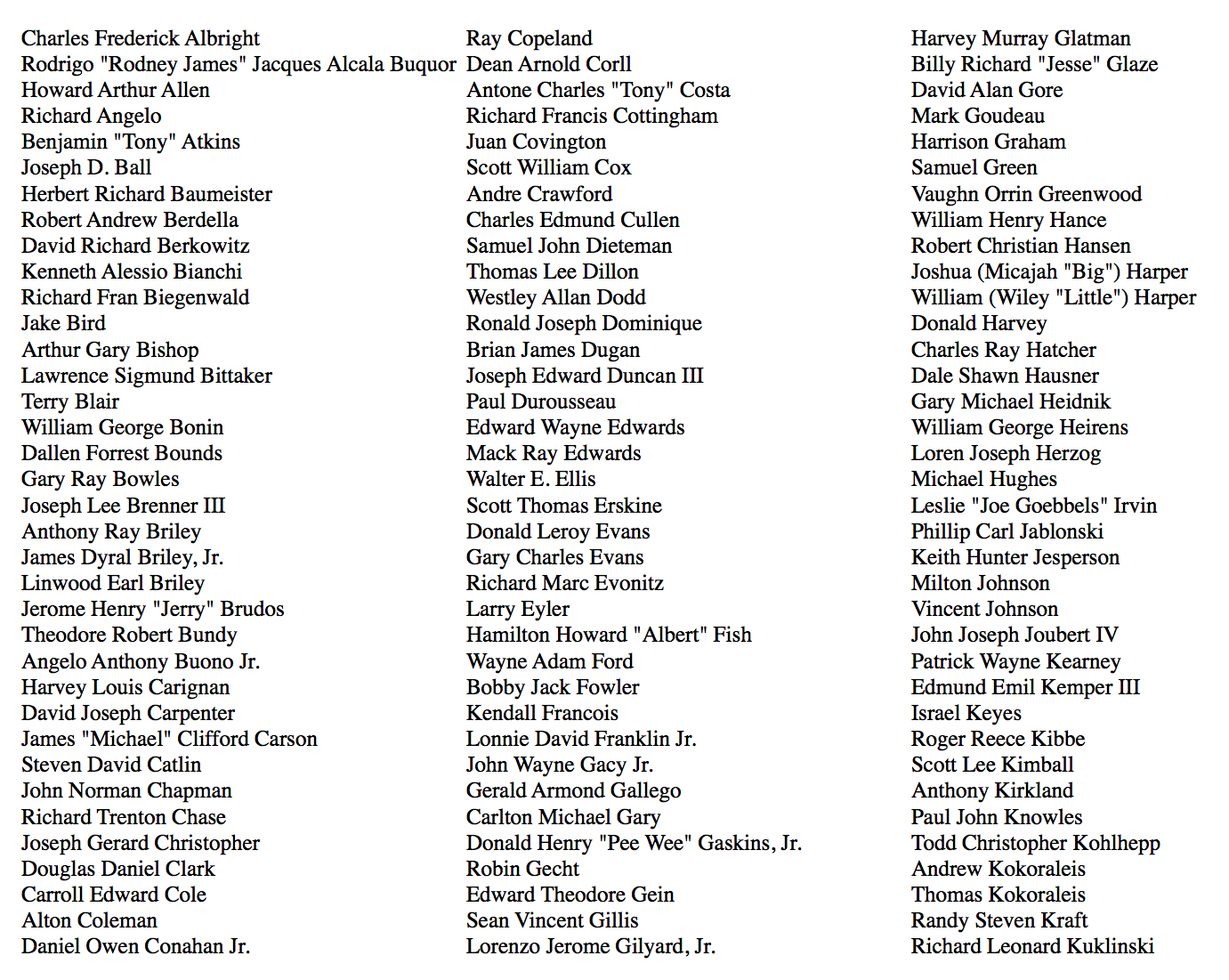Criminal nicknames have long been a fixture in the world of crime and law enforcement, serving as intriguing identifiers that often carry significant meaning. These monikers can reveal a wealth of information about the personality, modus operandi, or even the notoriety of the individuals they represent. In this article, we will explore the various dimensions of criminal nicknames, examining their origins, significance, and the psychological implications behind them.
From notorious gangsters to infamous serial killers, the use of nicknames has become a part of criminal folklore. Understanding these names not only provides insight into the criminal mind but also helps law enforcement agencies in profiling and tracking offenders. In addition, the cultural impact of these names often shapes public perception and media portrayals of crime.
Join us as we delve into the captivating world of criminal nicknames, unveiling their meanings and the stories behind some of the most infamous figures in history. We'll also discuss how these names affect society's understanding of crime and justice.
Table of Contents
- What Are Criminal Nicknames?
- History of Criminal Nicknames
- Psychological Significance of Criminal Nicknames
- Famous Criminal Nicknames
- How Nicknames Affect Public Perception
- The Role of Media in Shaping Criminal Nicknames
- Law Enforcement and Criminal Nicknames
- Conclusion
What Are Criminal Nicknames?
Criminal nicknames are informal, often colorful names assigned to individuals involved in criminal activities. These monikers can be based on various factors, such as physical characteristics, notorious actions, or even cultural references. Some examples include "Scarface," "The Zodiac Killer," and "Whitey" Bulger.
Characteristics of Criminal Nicknames
Criminal nicknames often share certain characteristics:
- Memorable: They are designed to be catchy or memorable, making them easy to recall.
- Descriptive: Many nicknames describe a notable feature or a specific crime.
- Cultural Influence: Some names reflect cultural or societal references, connecting the criminal to broader narratives.
History of Criminal Nicknames
The use of nicknames among criminals has a long history, tracing back to early societies where individuals were often identified by their deeds rather than their given names. In many cases, these names served as a form of social commentary or folklore, becoming part of the cultural landscape.
Evolution Over Time
As societies evolved, so did the nature of criminal nicknames. In the 19th century, infamous outlaws and gangsters gained notoriety, with names like "Billy the Kid" and "Al Capone" becoming synonymous with crime. The media played a crucial role in popularizing these names, contributing to their lasting legacy.
Psychological Significance of Criminal Nicknames
Criminal nicknames can provide insights into the psychology of offenders. These names often reflect the persona that criminals wish to project or the fear they instill in others. Understanding this aspect can help in profiling and predicting criminal behavior.
Identity and Self-Perception
Many criminals adopt nicknames as a means of creating a distinct identity. This can serve to separate their criminal life from their personal life, allowing them to embrace a persona that embodies their actions. This psychological distancing can have profound effects on their behavior and motivations.
Famous Criminal Nicknames
Some criminals have become legends due to their notorious deeds and the nicknames associated with them. Here are a few notable examples:
- Al Capone: Known as "Scarface," Capone was a notorious gangster during the Prohibition era.
- Jack the Ripper: The unidentified serial killer who terrorized London in the late 1800s.
- Pablo Escobar: Often referred to as "The King of Cocaine," Escobar was a powerful drug lord in Colombia.
How Nicknames Affect Public Perception
The impact of criminal nicknames extends beyond the individuals they describe; they also shape public perception of crime. These names often evoke strong emotions and can contribute to the stigmatization of certain communities.
Cultural Implications
Criminal nicknames can reinforce stereotypes and contribute to societal fears. For instance, names associated with violent crime can lead to generalizations about entire neighborhoods or demographics, impacting community relations and policy decisions.
The Role of Media in Shaping Criminal Nicknames
Media coverage plays a significant role in the proliferation of criminal nicknames. Sensationalized reporting can elevate the status of certain criminals, making their nicknames more widely recognized.
Case Studies in Media Influence
Examine how media portrayals have shaped the legacies of various criminals:
- The Zodiac Killer: The media's fascination with this unsolved case has immortalized the nickname.
- Bernie Madoff: Dubbed "The Wizard of Wall Street," Madoff's nickname highlights the deception behind his Ponzi scheme.
Law Enforcement and Criminal Nicknames
Law enforcement agencies often utilize criminal nicknames in their investigations. These names can aid in identifying suspects and understanding criminal networks.
Profiling and Investigation
Criminal nicknames can assist law enforcement in building profiles of offenders. By analyzing the patterns associated with certain names, investigators can glean insights into criminal behavior and potential motives.
Conclusion
Criminal nicknames serve as fascinating cultural artifacts that provide insight into the world of crime. They reveal much about the individuals behind them, as well as the societal perceptions that surround criminal behavior. Understanding these nicknames can enhance our comprehension of crime and its impact on society.
We invite you to share your thoughts on criminal nicknames in the comments below. What do you think these names reveal about the offenders and society at large? Don't forget to share this article and explore more insightful content on our site!




